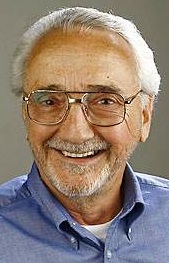 Beautiful Nate/Dennis Mansfield Howard Books |
Beautiful Nate: A Memoir of a Family's Love, a Life Lost, and Heaven's Promises, written by Idahoan Dennis Mansfield about the son who died four years ago, is as much as anything else about finding the beauty within a mess. Mansfield does, although doing that has meant rethinking much of what he once thought he knew.
Those who got to know Mansfield when he first moved to Idaho a bit over 20 years ago, when he emerged as a state leader of Focus on the Family and maybe the state's most visible social conservative, encountered a person of near-total certitude. An activist on the abortion and gay rights fronts, and tightly connected through much of the Idaho (and national) evangelical community, he seemed easily defined by stereotype. In his personal life too, he writes, he had a definitive take on among other things how to raise children.
Then Nate happened, and if what followed didn't upend everything in Mansfield's world, it changed a great deal.
He still is a highly active evangelical Christian and a political conservative, and his faith runs through a book which feels written more for an evangelical audience, or at least within that framework, than for people of other persuasions. But it's well worth reading for non-evangelicals too, partly for the insights Mansfield offers here into the mindset, and partly because the story at the heart of the book, Nate's, is at its core a human tale of tragedy and hope, running well beyond limitations of religion or politics, a sequence of events that could happen to anyone and has happened to many.
We're all of us complex people, but Nate Mansfield, Dennis' eldest son, may have been more obviously so than most. A political conservative and an evangelical Christian - he evidently shared those things with his father, to some degree at least to the end - was both gifted and capable on a number of fronts (as a teenaged campaign manager, for example) but also rebellious, ferociously angry and driven toward drug abuse. The roots of this aren't completely spelled out (Mansfield may here be telling as much as he knows about those origins), but before Nate left high school he had been arrested - creating a problem for Mansfield's 2000 congressional campaign - and would be arrested repeatedly in the years to come. Periodically addicted to substances both legal and not, heroin among them, Nate died in 2009 of a drug interaction.
The story of how Nate and his parents related uneasily over the years to come is unfortunately not an altogether new tale these days. There is a notably breathtaking and wrenching section here where Mansfield and his wife have to decide whether to allow a then-imprisoned Nate out from behind bars and back into their house, and decide against. You can feel the pain on the page.
The background is distinctive, however, because Mansfield had come into parenting and into much of his early activist work out of certainty that he knew the right way to raise a child - he describes in some detail what that was, where it came from, how he tried to put it into effect and how it periodically smashed into practical application - and was thrown when it didn't work out. (In Nate's case, that is: We aren't told quite enough about the other two children in the house, but their lives apparently proceeded on less eventful and markedly smoother tracks to adulthood.) (more…)





